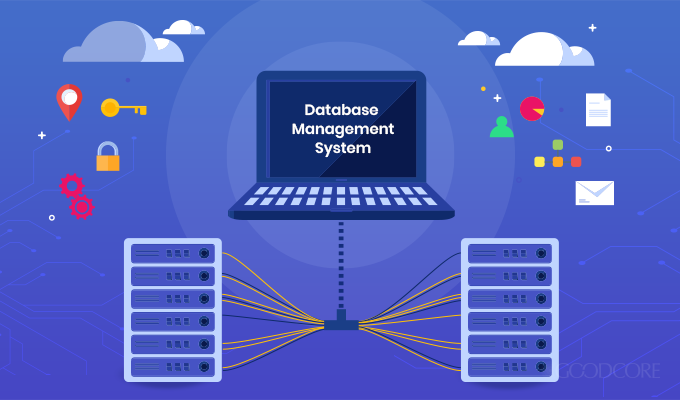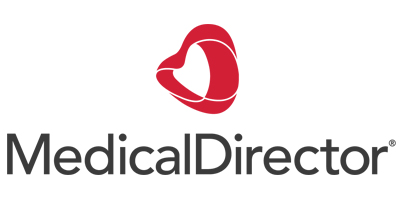With advancements in the field of medicine, more medical databases are becoming available for use by doctors. These databases hold vast amounts of information on every aspect of a patient’s medical history. The information ranges from disease processes right down to vital life support systems. The information is incredibly valuable to doctors as it allows them to do their job better. In this article, we will take a look at how medical databases have changed the way that doctors work.
Who has access?
Most doctors have access to a medical database that contains detailed information on their patients. This is valuable not only to the doctor but also to the hospital where the doctor works out of. If a doctor has just one or two procedures performed on a certain part of his/her body, he/she will not have to go through the trouble of remembering all the details about each procedure. However, if that doctor knew everything there was to know about that specific part of a patient’s body, he/she would be able to perform the surgery much more accurately and safely. Medical databases enable doctors to do just that.
Benefits.
Another huge benefit that medical databases provide the doctor is that they give him/her an entire palette of options to choose from when performing operations. There used to be a time when a doctor could only do the standard operation: giving a patient medication, having him/her put a bandage on, etc. However, thanks to medical databases, the doctor now has a complete range of options to choose from when performing surgery. For instance, some medical databases allow a doctor to perform open heart surgery while others will even let him perform open heart surgery with a pacemaker attached!
One other major advantage to using a medical database is the way it streamlines the whole process of medicine. Before, doctors had to collect all the data they needed from patients themselves: notes, prescriptions, etc. Then, they had to organize the data into an easily understandable format that the doctor could use to make his or her next steps. However, the problem with this method is that some doctors forget something, write something else wrong, or even misread something…and thus end up giving the wrong treatment to a patient. Now thanks to medical databases, the doctor no longer has to go through this entire process.
How can a medical database help?
Medical databases also help doctors save money. In the past, when doctors wrote out prescriptions, they had to buy all the paper and ink for each and every prescription. This would have cost the doctor a lot of money – which is why many doctors were hesitant to write prescriptions in the beginning.
Today, thanks to the computerization of such processes, it is possible for doctors to record all their information digitally and then send the electronically formatted files to their patients. Doctors’ assistants are no longer required to write out these files, thus saving the doctors’ money and simplifying the paperwork.
There are also other important benefits that come with using medical databases. For instance, it has made it easier for doctors to find out more information about a certain patient. For example, if a doctor has a particular health problem, he or she may want to know more about the patient before recommending treatment. To do so, they would have to physically visit the individual, talk to him or her face-to-face, and maybe even ask him or her to bring along some documents. Now thanks to the computerization of these medical databases, it is easier for a doctor to simply access the electronic versions of the patient’s records and recommend treatment accordingly.
However, doctors and their assistants have some worries as well. Because there are now so many people using these systems, there is a higher risk of identity theft in this era of cyberspace. And, because the information that goes into these databases are already organized, doctors have a hard time searching for specific information about a specific patient.
In fact, many doctors are still hesitant about letting patients use these systems, thinking that criminals could be waiting to break into these computers and take advantage of the information. However, thanks to the efforts of the government and the companies involved, there are now very powerful systems that prevent such things from happening.
The issues and drawbacks.
A major worry for doctors and their assistants is whether the electronic systems they are using will be compatible with the HIPAA laws. This is a law set up by the Americans with Disabilities Act of 1996 that aims to protect patients’ privacy rights.
This means that medical institutions must go through a process of protecting the private information of patients and only release the information to those who need it, requiring doctors and their assistants to sign a form indicating that they will be responsible for maintaining the privacy of the information. HIPAA compliance is one of the most important factors in using an electronic medical record system, ensuring that the system will work for everyone. Note that HIPAA laws only relate to U.S law. Australian medical data must adhear to the “Australian Privacy Act 1988“
Medical data is usually stored locally or on a virtual private cloud server. Medical practices storing data in the cloud beneift from major cost savings due to the fact no onsite support is required to maintain physical database servers on the premises.

Types of Database Management Systems
- Hierarchical databases.
- Network databases.
- Relational databases.
- Object-oriented databases.
- Graph databases.
- ER model databases.
- Document databases.
- NoSQL databases.
- Centralised database.
- Distributed database.
When speaking of the different kinds of medical databases available around the world, one cannot but notice that the most common, and also one of the most sophisticated databases is the electronic medical record database (EMR), also known as the EMR. The EMR is comprised of all the information required by the diagnosis of a disease or medical condition. In short, it is a system of recording medical data that enables a doctor to properly make a diagnosis and thus treat the patient. The major parts of the EMR are done in the office environment through a computerized system, although some data is transmitted via other means, including orally or visually.
Have databases really helped?
Despite the fact that these databases have helped greatly in the prevention and treatment of major cardiovascular diseases, they still have a lot of work to do. The biggest challenge is in the area of clinical practice. There are currently very few in-house clinical research projects that rely solely on these databases for their data sources. Even those clinical research projects that exist are still largely influenced by the EMR system. Thus, the medical professionals who conduct the clinical research projects have to adapt to these two databases first before they can fully utilize the information and data collected from them.
Medical records are among the best kept private information in the world, yet many patients still feel uncomfortable having their records shared with doctors and other health care providers. There is a good reason for this: fear. An ounce of fear is enough to cause an avalanche of anxiety, not to mention the havoc that can be wreaked when bad things happen. With so much at stake, you want to make sure that your medical records are treated just like any other confidential document – only with more respect.
Many doctors assume they can access patient information without the patient’s permission. This is untrue. According to Health Insurance Legislation, all health care professionals and employers are required to protect the privacy of patients. As well, the Australian Medical Database Act makes it mandatory for doctors to inform patients of their right to request privacy if necessary. Doctors who fail to do so risk fines or even losing their medical license.
The point of doctor’s databases isn’t to simply keep track of a patient’s history; it’s also to provide quality care. By compiling information about every medical condition a person has ever been diagnosed with, doctors will be able to diagnose a problem before it develops into something worse. Doctors won’t have to waste time searching through hundreds, even thousands, of medical records to come up with a referral for a particular disease. They’ll know ahead of time what the person needs and what the best treatment options might be.
This isn’t the only advantage to using a doctor’s database. Medical professionals can also use it as a tool to improve their practice. If a person comes in to the office for a routine checkup, for instance, a doctor can look at their records and determine which procedures might help him or her get better pain relief or minimize the occurrence of other health complications. By building a database of medical information, doctors can identify risks beforehand and design a medical treatment plan to make sure a patient is comfortable with the plan.
As well as helping to improve a person’s life, Australian medical databases also provide some other perks. Many of them have patient recall databases, which allow doctors to instantly recall any details they need to know about a patient’s previous medical history. This can help prevent the need for numerous visits to the same doctor. In addition, if there is a change in medication, a patient may find that their medical databases will quickly inform them of the necessary changes.
Australian medical professionals are probably best-known for providing patients with outstanding service. However, they do more than simply take care of their patients. They also want to do everything possible to ensure their patients are completely satisfied with their care. This means they regularly update their databases in order to give their patients the best possible care. If you want to make your doctor’s life easier by providing exceptional service, all you have to do is find a medical database in Australia such as My Health Record.
Database backends used in the healthcare industry.
What Healthcare Databases Are Used for Today
- Practice management system.
- EHR.
- EMR
- Costing system.
- Patient satisfaction.
- Ambulatory surgery.
- Radiology.
- Pathology.
- Financial system.
- Prescriptions
- Pharmacy
The most popular database of all time is………
Oracle
Oracle databases are widely used and the most commonly used database management system. This database is widely used for application and for business purpose. The database is used for storing all the data, both permanent and temporary. It includes the date, time, user name and password for every entity, the functions and policies and the users in the organisation.
Databases are created to cater the needs of all types of customers. Customers can use the database to store the historical data, or they can use the database for current business requirements. The database is easy to use and to modify and the developers can perform almost all the tasks without any problem.
Oracle databases can be customised by adding modules. These add-on modules make it possible to access information and data from different locations across the globe. Database maintenance is also very easy with Oracle because it has a number of tools available to maintain the database. These tools allow the users to create, modify and delete the records. Oracle databases are one of the most used systems because they are well maintained, and their maintenance is also very simple and easy. track of the progress and performance of their employees. There are many companies that use these databases for various purposes.
Medical software supported by databases in Australia

Medical Director software solutions from Pracsoft allows all members of a medical practice to view all of the data and information that affect your practice, including graphs that show the number of patients that see a doctor at a certain time and location and charts that show the types of tests performed, the number of tests that are ordered and the outcome of those tests.
You can also import data from your clinical study data base, which is maintained by your Medical Director. Importing this data allows you to create charts and graphs that explain your patient’s experience in terms that anyone can understand.
This is a popular practice management software solution that allows your Medical Director to quickly analyze and make changes to the way that you manage your patients. Medical Director software solutions for Health Professionals helps your practice to save valuable time, improve quality care and save money on administrative expenses. The software can use several database backends and either be hosted locally or via a cloud a dedicated cloud hosting solution.






